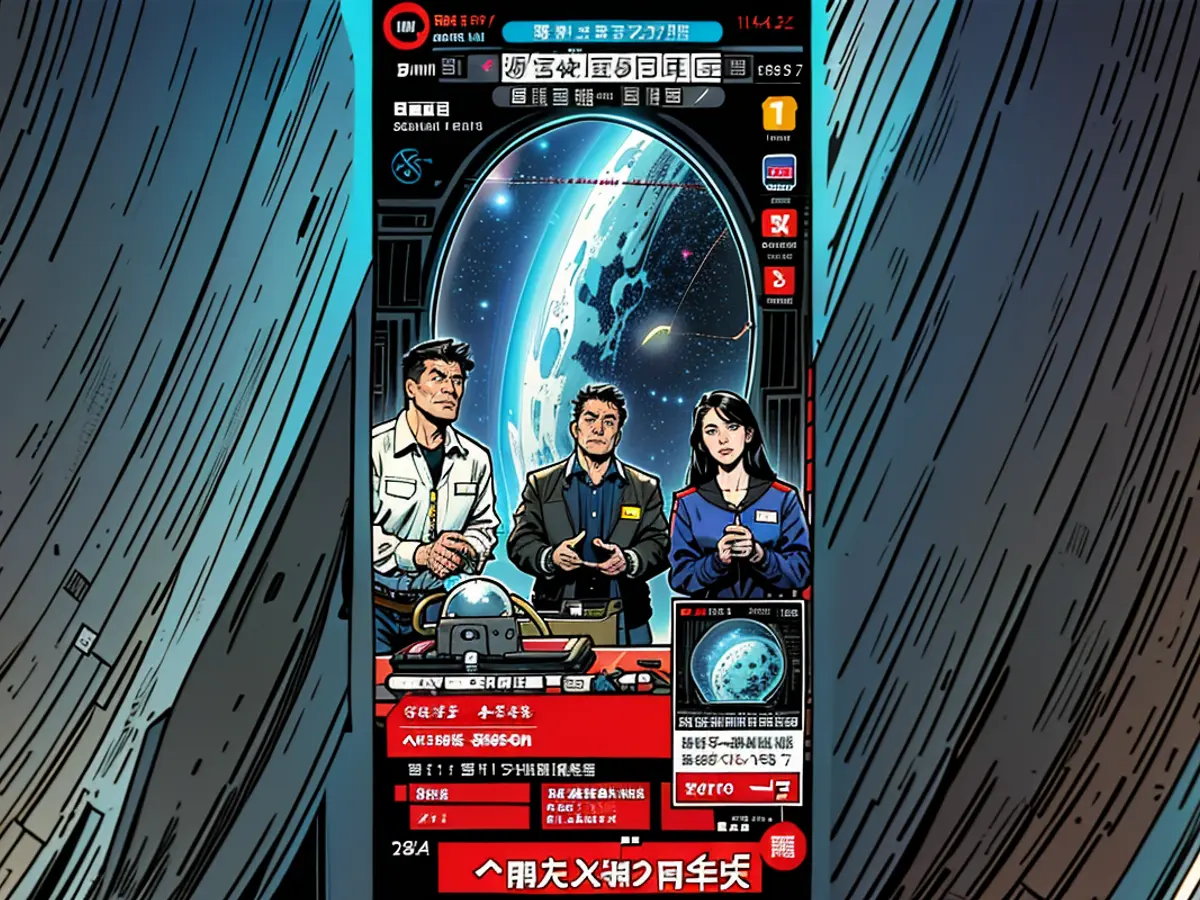Multitudes partook in an online broadcast, offering space travel tickets through a Chinese-made rocket.
The tickets, priced at approximately 1,000,000 yuan (equivalent to around $140,000) for a brief 12-minute journey to the fringes of space on a spacecraft intended to be launched by Deep Blue Aerospace in 2027, reportedly sold out swiftly, as per Global Times, a state-affiliated news outlet.
Approximately 3 million individuals tuned in to the live broadcast on Taobao, the Chinese shopping platform, marking the inaugural occasion for a Chinese enterprise to make space tourism tickets available to the general public.
The identities of the ticket buyers were not disclosed.
Deep Blue Aerospace is part of a pioneering group of Chinese commercial space enterprises working to realize Beijing's ambitious objectives in outer space. This includes the development of satellite constellations intended to rival those of SpaceX's Starlink, as China seeks to establish itself as a major player in space alongside the United States.
However, there are still several hurdles that Deep Blue Aerospace needs to overcome in order to meet its announced timeline.
The Nebula-1 reusable rocket, set to transport Deep Blue Aerospace's CEO and five others into space for the mission in three years, is still under construction. Last month, the rocket failed to complete a high-altitude vertical recovery test flight, as declared by the company, with footage released by them showing the vehicle crashing during its final phase. A new test is scheduled for next month, while the company has announced that it will increase testing significantly in 2025 and 2026 to ensure the safety and reliability of suborbital manned travel.
Despite the challenges faced by companies in the rocket development sector globally, Deep Blue Aerospace's CEO and founder, Huo Liang, expressed optimism during the ticket sale livestream that the rocket would be ready to power the 2027 flight.
Huo described the experience of passengers in space, who can unfasten their seatbelts in the weightless environment and move around freely, as similar to swimming fish. "In this experience, you can not only see how the earth appears round, but also the vast universe and the blue planet where humans live," said Huo, who founded Deep Blue Aerospace in 2016.
Deep Blue Aerospace aims to become part of an exclusive group of companies offering what is considered the next phase of adventure tourism – expensive trips where passengers willing to shell out hundreds of thousands of dollars can surpass the Karman line, a distance of around 100 kilometers (62 miles) above Earth's surface, to enter space.
Amazon founder Jeff Bezos' Blue Origin completed its first commercial human space flight with four private clients in 2021, while Virgin Galactic, the space tourism venture founded by British billionaire Richard Branson, started providing regular trips to the edge of space last year.
Additionally, companies are also looking to broaden their offerings to "space tourists."
Last month, a four-person civilian team aboard SpaceX's Polaris Dawn mission made history as the first group of non-government astronauts to conduct a spacewalk.
Deep Blue Aerospace is not the only Chinese firm with plans to send humans into space. In May 2028, CAS Space announced that its "space tourism vehicle" will embark on its first crewed mission, with tickets expected to cost between 2 to 3 million yuan (about $281,000 to $421,000), according to state media.
The company is among a number of Chinese state-backed and private firms aspiring to develop reusable rocket technology, which could potentially make space travel more frequent and sustainable for China, as it strives to increase its launch capacity, build out satellite constellations, and fuel its ambitious civil space program.
During the live broadcast, some individuals raised playful questions, such as, "If we go, can we get back?"
Those interested in securing the remaining seats will get another opportunity, according to Deep Blue Aerospace's Taobao page, which revealed that ticket sales will resume on November 23.
The success of Deep Blue Aerospace's space tourism tickets in selling out highlights the global interest in space exploration, especially in China. With the upcoming space tourism mission planned by CAS Space in 2028, China is positioning itself as a major player in the expansion of space tourism, joining the likes of Blue Origin and Virgin Galactic.








